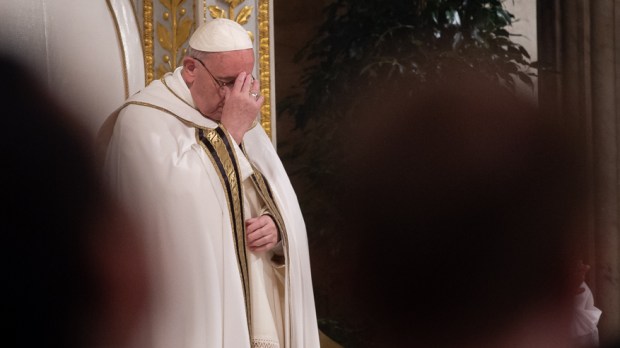A year has gone by. It was January 26, 2020, that Pope Francis spoke for the first time about the “virus that has spread in China.”
Pope Francis has played a special role of accompanying the planet during the pandemic, comforting, advising, exhorting, setting an example.
On January 26, 2020, the Covid-19 pandemic was only a distant reality. During a prayer intention at the Angelus address, the pope directed his thoughts to the “victims of the virus that has broken out in China.” At that time when the crisis was seen to be intensifying in that country, especially around the metropolis of Wuhan, the pontiff praised the efforts of the Chinese community to combat the epidemic. The Holy See collected and sent 700,000 masks to China.
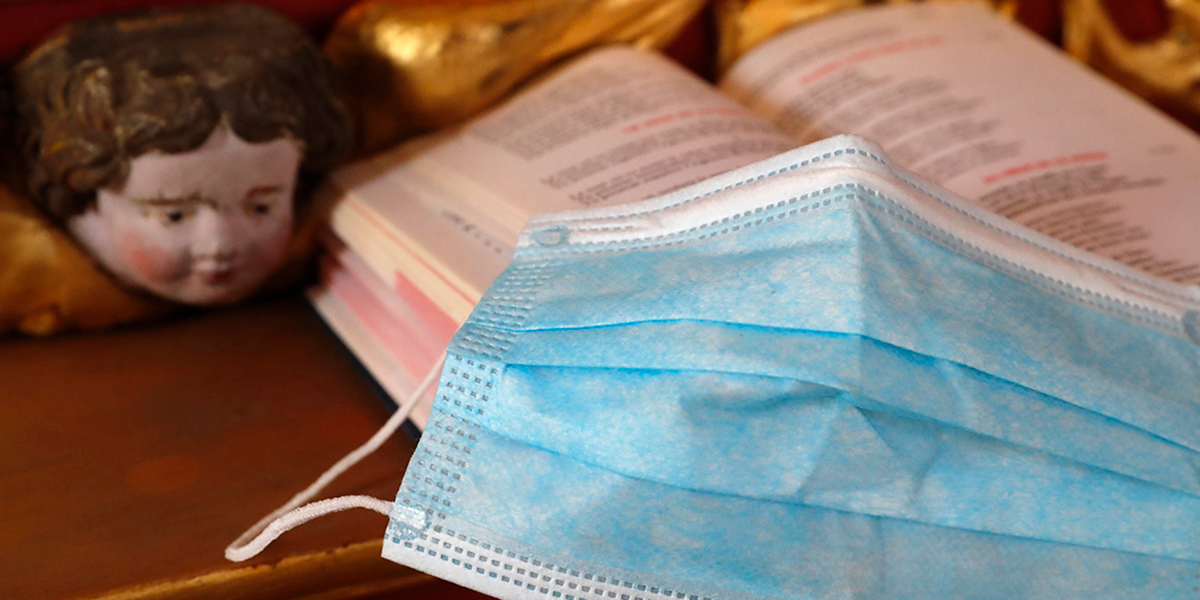
The arrival of the coronavirus in Italy a month later coincided with the beginning of Lent. In Rome, a region then less affected than Lombardy, the first symptom of a crisis of great magnitude was the closure of many churches on Ash Wednesday. On March 6, a first case of coronavirus was detected in the Vatican. A few days later, the Vatican closed its Museums, and then took refuge behind its walls. Italy, like many other countries, discovered confinement.
The pontiff then crossed out all public audiences. As a sign of his closeness to the people, he took an initiative on March 9 that would bring comfort and support to many people around the world: the exceptional transmission of his morning Mass from the Casa Santa Marta. He offered his first Mass, in a brief address at the beginning of the ceremony, “for the patients of this epidemic, for the doctors, nurses, and volunteers who are helping so much.” This short introduction to each celebration, which became a ritual throughout that period of the crisis, was an opportunity each day—until May 17 when these daily broadcasts ended—to offer his support and prayers to all members of society affected by the pandemic.
Alone, in St. Peter’s Square, in the midst of the storm
From the very beginning of the health crisis, Pope Francis insisted on the importance of seeing as well the dysfunctions of society, exacerbated in many cases by the virus. For example, on March 11, he urged the faithful not to forget all those who suffer the evils of war, as in Syria. This crisis, he stressed, is the right time to understand the value of “closeness.” On March 15, following in the footsteps of his predecessors, he entrusted Rome, Italy, and the world to the Virgin “Salus populi Romani” and the miraculous crucifix of San Marcello al Corso, asking for “the end of the pandemic.”
March 27 was a high point of the pope’s pandemic ministry. Unable to be physically with the people, he found the way to nevertheless give his apostolic blessing. He gave the exception blessing “Urbi et Orbi”—”to the City and the world”—in an almost apocalyptic scene that was to mark minds and hearts all over the world. Alone on the steps of the Square in front of St. Peter’s Basilica, under the beating rain, he entrusted humanity in the storm to Christ: “We carried on regardless, thinking we would stay healthy in a world that was sick. Now that we are in a stormy sea, we implore you: ‘Wake up, Lord!’”
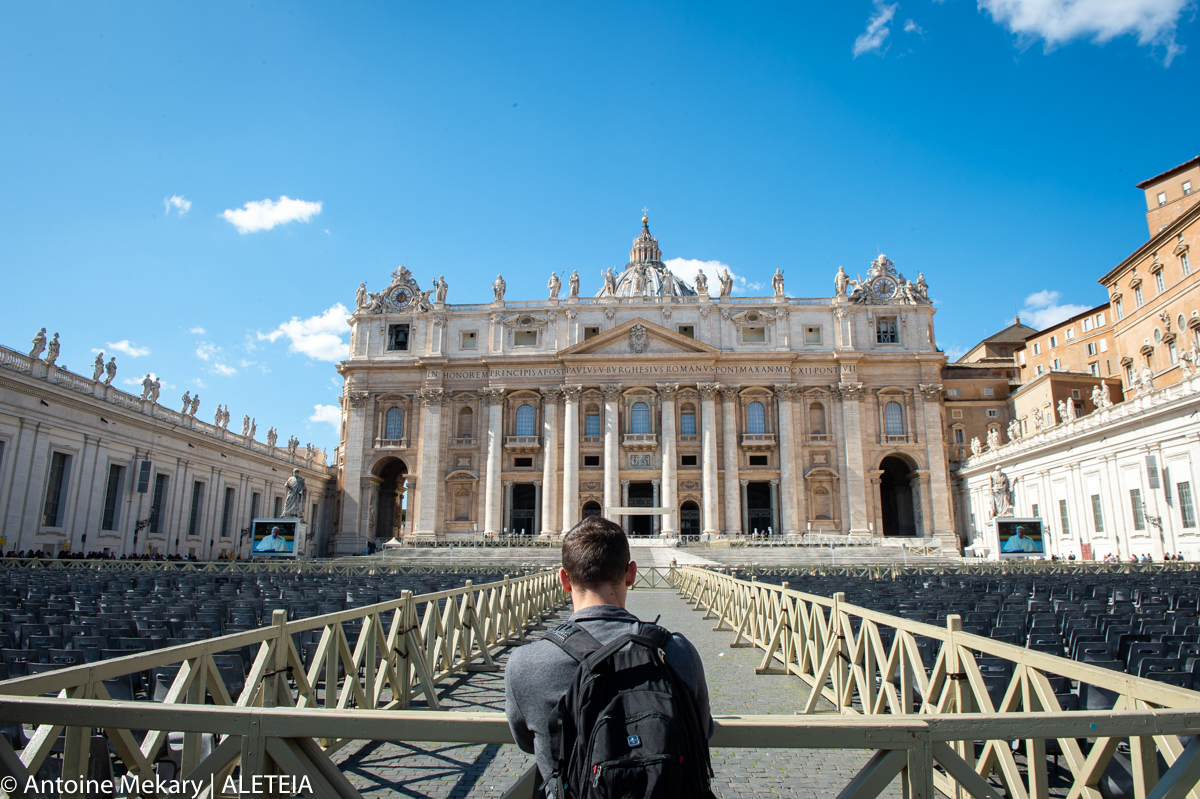

Read more:
Why the pope’s blessing on March 27 is absolutely unique
“Entering the crisis”
Pope Francis also challenged the governments of the world, warning them against the temptation to sacrifice lives to save the economy, a logic that would be “a viral genocide,” he declared on March 30. Aware of the great difficulties that could affect the weakest nations, the Bishop of Rome set up an emergency fund for the countries of the South on April 6, which he endowed with $750,000. On April 15, he set up a commission to reflect on the socio-economic challenges posed by the crisis. The pontiff testified to his deep conviction that the world crisis was “a time for inventiveness and creativity,” as he said in an interview on April 7.
A historic Holy Week
In April, in the grandiose setting of a deserted Vatican, Pope Francis was to lead a historic Holy Week. Celebrating almost alone all the great ceremonies of the Easter Triduum, the heart of the year for Catholics, he entrusted to the Crucified One “the countless places of suffering of humanity.” The Via Crucis, usually celebrated in the presence of the Roman people at the Colosseum, was led by the light of a few torches carried by doctors and prisoners in St. Peter’s Square.
The next day, at the Easter Vigil, the Pontiff, using the popular Italian pandemic slogan “everything will be all right,” proclaimed that the Resurrection of Christ was a light “in the darkness of our night.” In spite of the suffering of humanity, Easter, he said the following day, had the power to transmit to the world “a different contagion” — that of hope.
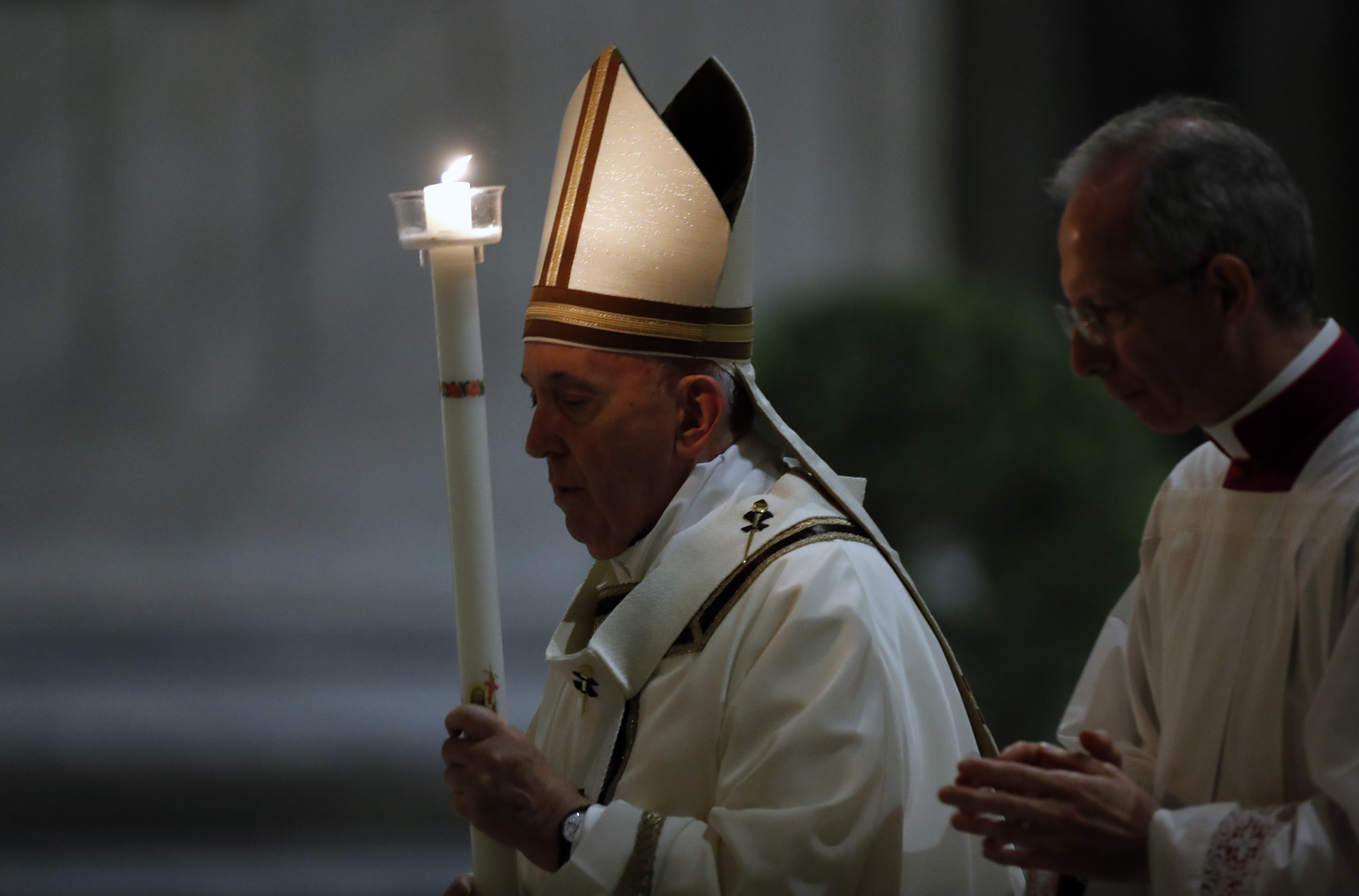
The pope again convoked the world, this time to pray the Rosary for the end of the pandemic, on May 30. Shrines from around the globe connected via video link for the prayer. The pope also provided two special prayers for the end of the Rosary, especially for the month of May.
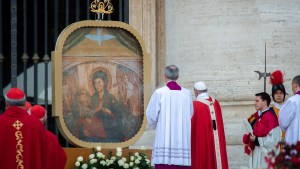
Read more:
Pope asks us to add these 2 prayers to end of Rosary in month of May
Throughout this period, Pope Francis also seemed to meditate on the need, in order to face the crisis, to call for a universal fraternity that would unite first and foremost the believers of various religions. On June 20, during his first public audience, he asked, in order to “honor” the memory of the deceased, to “build the future.” The world, he explained again on June 29, “needs real prophecy.”
An encyclical, fruit of meditation during the pandemic
A few months later, Pope Francis made a major contribution to this reflection on social renewal: an encyclical. For if Fratelli tutti, signed on October 3, 2020, at the tomb of St. Francis of Assisi, was first of all the fruit of a long dialogue with the great imam of Al Azhar, the pontiff explained that it had been written during the pandemic, while the coronavirus was exposing “our false certainties.”
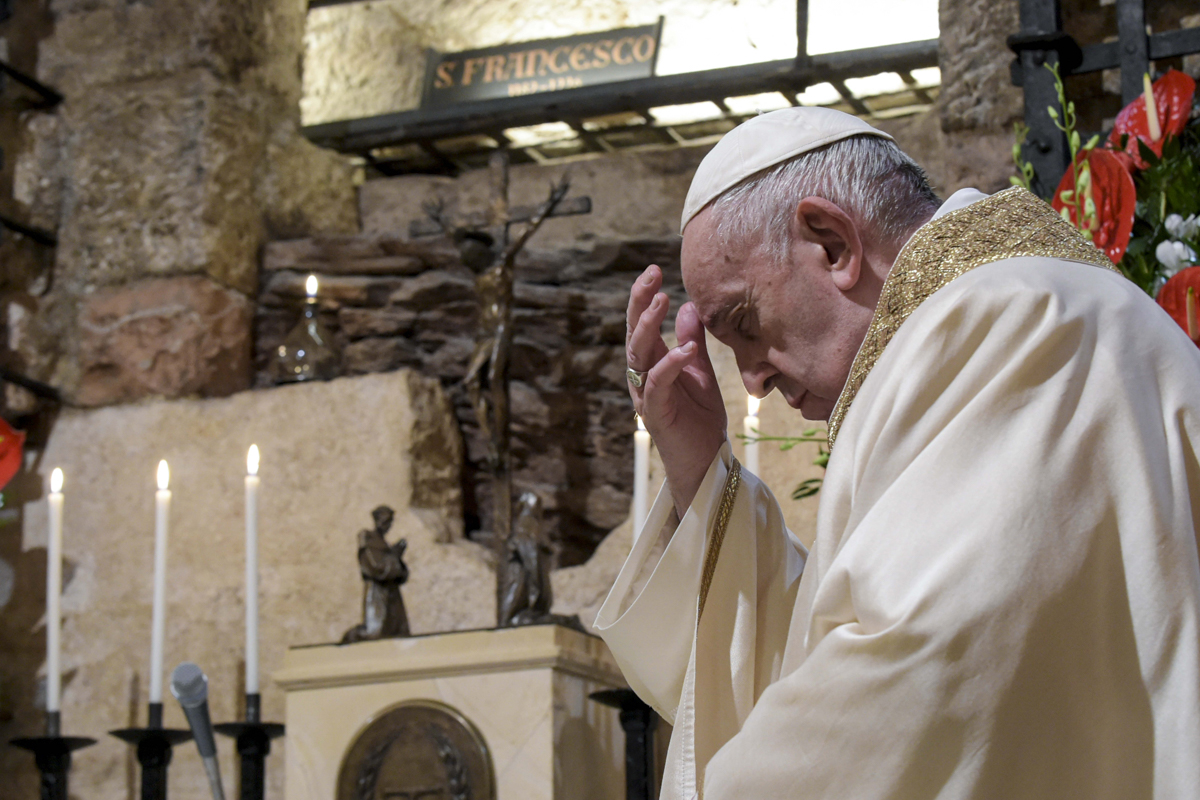
“The world is itself crying out in rebellion” in this crisis, the pontiff noted in the encyclical, calling for a “rebirth of a universal aspiration to fraternity” by advancing towards a new way of life.
These reflections were already germinating when, on August 19, Pope Francis warned against the risk of “giving priority to the richest” in the distribution of vaccines. Behind the “little virus that brings the world to its knees,” the pontiff denounced the “great virus, that of social injustice.” On this point, he received strong support from the director of the World Health Organization, Tedros Adhanom Ghebreyesus, on August 20.
For globalization of the cure
Pope Francis then called for “globalization of the cure.” However, the beginning of the vaccination campaigns proved that the fears expressed by the pontiff were justified: on January 22, 2021, Archbishop Vincenzo Paglia, president of the Pontifical Academy for Life, denounced “too much antagonism and competition” in the production and distribution of vaccines.
At the end of December 2020, the Vatican in two separate notes—one from the Congregation for the Doctrine of the Faith and another from the COVID-19 Commission and the Pontifical Academy for Life—encouraged vaccination to put an end to the pandemic that has been afflicting the world for a year. The Congregation for the Doctrine of the Faith deemed it “morally acceptable” to receive vaccines using cells derived from aborted fetuses in the research and production process under two conditions: on the one hand, when there was no alternative available and, on the other, that the situation was serious enough.
Pope Francis, in various media, had publicly promoted universal vaccination to the point of also receiving the vaccine, along with the Pope Emeritus, Benedict XVI. And to set an example, since January 20 the Holy See has been delivering the precious medication to the homeless.
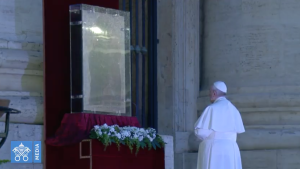
Read more:
The image of Mary that Pope Francis wanted present for his ‘Urbi et Orbi’ blessing
